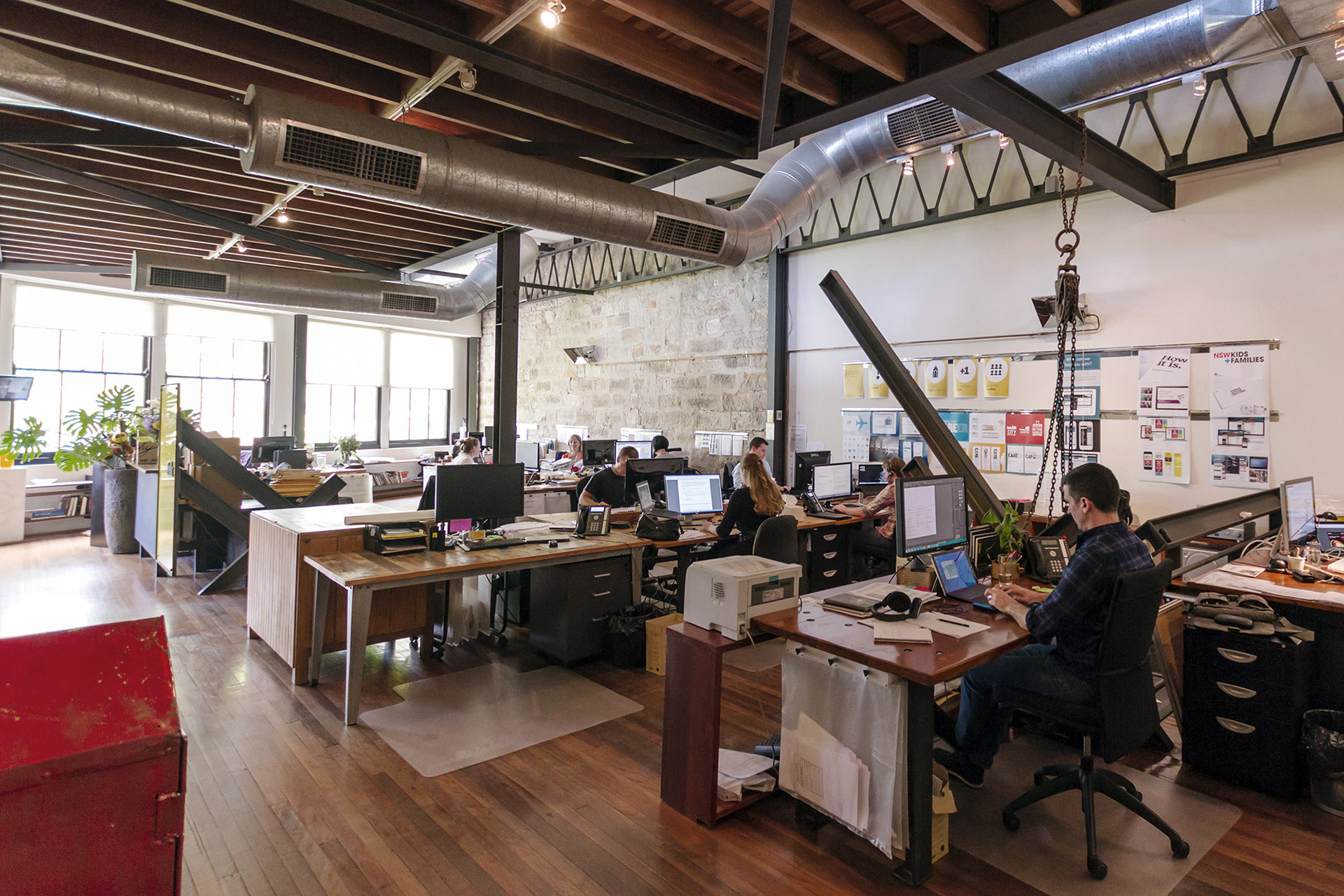Journal
Article
Good work at work
The cost of mental health in the workplace

Georgie Harman, CEO of beyondblue, spoke recently on 'The cost of mental health to your workplace’ at a CEDA event supported by Folk.
In the course of putting together a few notes to introduce Georgie I had cause to reflect and think through my experience, both as an employer and as someone who is lucky enough to do interesting and challenging work, in a friendly and supportive place.
I first met Georgie back in 2012 while doing some brand strategy and identity work around establishment of the new organisation, the National Mental Health Commission, where Georgie was Deputy CEO.
Amongst the many good things the organisation has done was a series of annual national report cards on Mental Health and Suicide Prevention in Australia - the title of the first report being “A Contributing Life”. A chapter in this 2012 report was titled “Something meaningful to do, something to look forward to” which was about participation in work and employment.
The report drew on a wide range of data sources but also on the personal experiences of people from all over Australia, from different walks of life, with lived experience of mental health issues. It was their stories, in which many of them talked about what participation in work - or lack thereof - meant for them, their families, friends and sometimes work colleagues. Many of the stories started in a dark place – their trajectory towards isolation and the compounding issues associated with becoming unemployed.
It was a revelation for me, and I’m assuming many others who read them. Those stories were a small window into the huge difference it can make to people to be engaged in meaningful work and all that comes with it – the sense of purpose, self-worth, social connections and relationships, economic independence, and enjoyment.
Which is all really interesting in the context of conversations that often happen around “Work life balance”, where there’s an implication that work is toxic, life is good, one takes and another gives, and somehow we need to offset the two.
In the last Boyer lecture series Professor Sir Michael Marmot talks about social determinants of ill health – he uses some confronting examples to contrast the impact of “good” and “bad” work on physical and mental health.
In the same way there’s clear evidence “bad or poor quality work” can cause harm, there’s an increasing appreciation that “good work” is far from toxic - but the onus is on employers to provide “good work”. That means many different things – think of emergency services, defence forces right through to work in a pizza shop or convenience store.
One aspect of “good work” is fostering a supportive workplace environment that supports people with mental health conditions and encouraging openness in order to create a workplace culture that is inclusive and more productive.
With 1 in 5 employees in Australian workplaces likely to be experiencing a mental health condition at any given time there’s no question improving workplace mental health is in everyone's interests and is everyone's responsibility. Find out more at www.headsup.org.au - a brilliant resource for employers.
You can read Georgie’s (excellent and informative) presentation here:
http://ceda.informz.net/ceda/data/images/Documents/N170314_HarmanPres.pdf
And one last thing… A great read on the idea of “inclusive prosperity”
https://hbr.org/2017/04/meaningful-work-should-not-be-a-privilege-of-the-elite